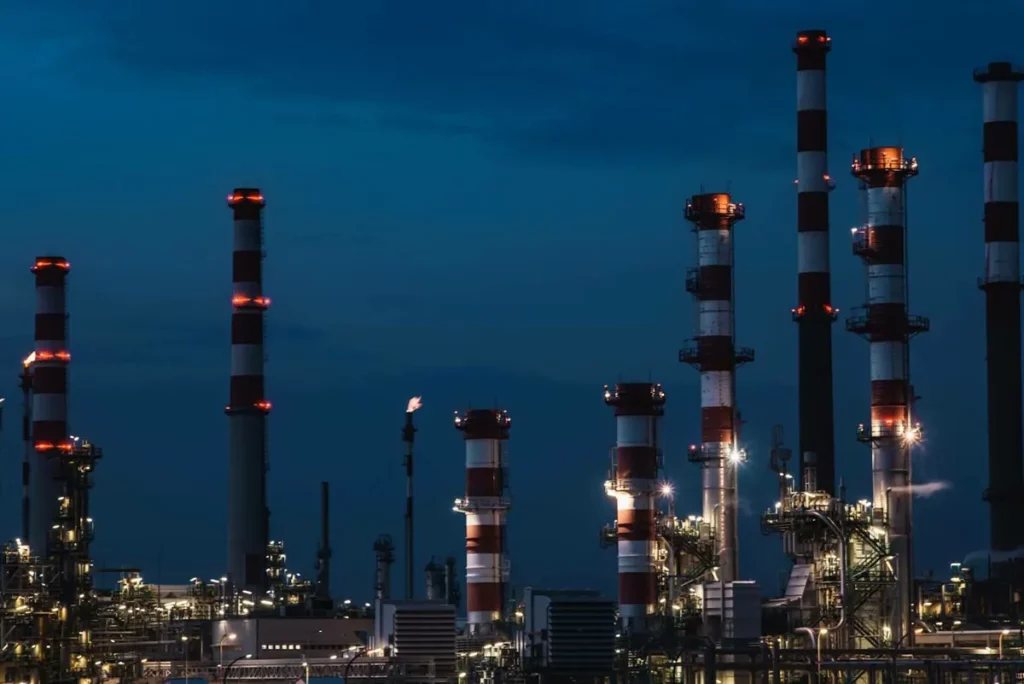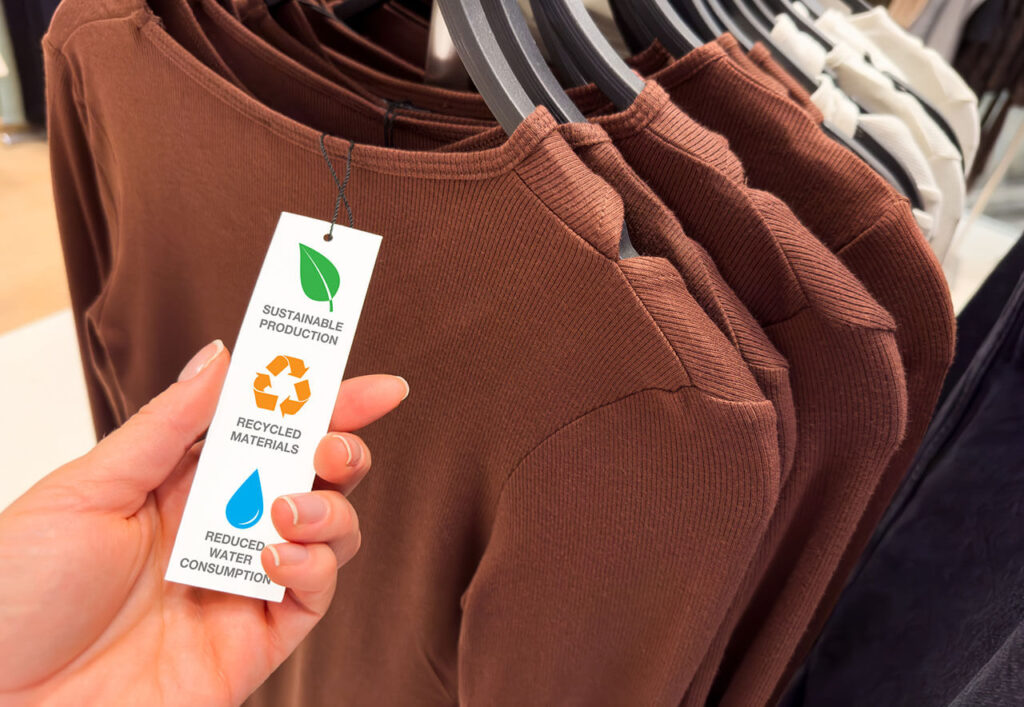Küresel üretim sektörü, dünyada sera gazlarının en büyük tek yayıcılarından biridir (GHG) ve dünyanın toplam GHG emisyonlarının üçte ikisiAncak, üretim teknolojisindeki son gelişmelerin ve daha sürdürülebilir, eko-verimli süreçlere yönelik artan bağlılığın, sektörün Kapsam 1, 2 ve 3 emisyonlarını genel olarak azaltmasına yardımcı olması ve Kapsam 4 emisyonlarını da ele almaya başlaması yüreklendirici.
Kapsam 1, 2, 3 ve 4 emisyonları nelerdir?

- Kapsam 1: şirketin sahip olduğu ve kontrol ettiği kaynaklardan gelen doğrudan GHG emisyonlarını kapsar. Yaygın faaliyetler arasında yakıt yanması; fiziksel veya kimyasal işleme; malzeme, ürün, atık ve çalışanların taşınması; ve kaçak emisyonlar bulunur.
- Kapsam 2: Kapsam 1 faaliyetlerinde kullanılan satın alınan elektriğin üretiminden kaynaklanan dolaylı GHG emisyonlarını kapsar.
- Kapsam 3: Bir şirketin daha geniş değer zincirindeki yukarı veya aşağı akış faaliyetlerinden kaynaklanan dolaylı GHG emisyonlarını kapsar, örneğin ham maddelerin çıkarılması (yukarı akış) veya atık bertarafı (aşağı akış). Bir şirketin Kapsam 1 ve 2 emisyonları, başka bir şirketin Kapsam 3'üdür.
- Kapsam 4: bir şirketin ürününün kullanımından kaynaklanan kaçınılan emisyonları kapsar. Kapsam 1-3'ün aksine, bir şirketin Kapsam 4 emisyonlarında puanı ne kadar yüksekse o kadar iyidir. Kapsam 4, bir ürünün olumlu iklim etkisinin daha bütünsel bir hesaplamasını sağlamak için tanıtıldı. Nispeten yenidir ve GHG Protokolü tarafından resmi olarak tanınmamaktadır.
Endüstri 4.0: Küresel üretimin karbon ayak izini azaltmasına yardımcı oluyor
Dijital ve analitik araçların gelişmesi de dahil olmak üzere teknolojideki ilerlemeler, daha ekolojik olarak verimli üretim süreçlerinin ortaya çıkmasına ve emisyonların azalmasına yol açtı.
Üretim sektörü de daha hafif bir karbon ayak izi için kaynak kullanımını takip etmek, izlemek ve iyileştirmek amacıyla Nesnelerin İnterneti (IoT), makine öğrenimi, yapay zeka (AI) ve otomasyon gibi Endüstri 4.0 teknolojilerinden yararlanıyor.
Tarafından sunulan birkaç vaka çalışması Dünya Ekonomik Forumu Bunu örneklendirelim.
Ericsson'un ABD'nin Teksas eyaletine bağlı Lewisville kentindeki akıllı fabrikası, üreticilerin yeşil enerji ve veri çözümlerini nasıl entegre ettiğini gösteriyor. 'azalt, yeniden kullan, geri dönüştür'Kapsam 1 ve 2 emisyonlarını azaltırken aynı zamanda verimliliği de artırıyoruz.
Tesis bünyesindeki güneş panelleri ve yağmur suyu soğutma tankları satın alınan elektriğe olan ihtiyacı azaltırken (Kapsam 2), 4G/5G sensör ağı enerji tüketimini izliyor ve analiz ediyor, gerektiğinde ekipmanı otomatik olarak açıp kapatıyor (Kapsam 1).
Sürdürülebilirlikle ilgili ölçütler yatırımcılar, paydaşlar ve tüketiciler tarafından giderek daha fazla incelenirken, üreticiler de ortaklarının, tedarikçilerinin ve dağıtımcılarının Kapsam 3 emisyonlarına daha fazla dikkat ediyor.
Bunu ele almak için, Tayland'ın Prachinburi kentindeki Western Digital, gerçek zamanlı lojistik verilerini izlemek ve bir sevkiyat ve lojistik iyileştiricisi geliştirmek için IoT bağlantılı sensörleri ve makine öğrenimi teknolojisini birleştirdi. Gereksiz sevkiyatları etkili bir şekilde ortadan kaldırdılar, rota verimliliğini iyileştirdiler ve taşımayla ilgili Kapsam 3 emisyonlarını azalttılar.
Üretimde sürdürülebilirliğin çok yönlü doğası
Uçtan uca değer zincirindeki emisyonların takibi, çok sayıda hammadde ve alt bileşenin hesaba katılması ve Kapsam 4 emisyonlarının üreticilerin kontrolü ve erişiminin çok ötesinde olması nedeniyle oldukça karmaşıktır. Ancak Kapsam 3 emisyonlarının ele alınması, küresel endüstrinin karbon ayak izini azaltmanın en kritik yollarından biri olmaya devam etmektedir.
Bu, özellikle üretim tedarik zinciri emisyonlarının artması nedeniyle önemlidir. 11 kat daha fazla operasyonel emisyonlardan daha fazladır.
Sonuç olarak, Kapsam 1, 2 ve 3 emisyonlarının daha başarılı bir şekilde azaltılmasının ve Kapsam 4 emisyonlarının ele alınmasının anahtarı veri paylaşımı ve şeffaflıktır.
Üreticilerin zincir genelindeki karbon ayak izlerini daha iyi ölçebilmeleri ve izleyebilmeleri ve bunu azaltmanın en etkili yollarını belirleyebilmeleri için emisyonlarla ilgili bilgilerin paylaşılması amacıyla küresel iş birliğine ihtiyaç duyulmaktadır.
Küresel üreticilerin herkes için daha iyi sonuçlar elde etmek üzere dönüşmesine yardımcı olmak için yaptığımız çalışmalar hakkında daha fazla bilgi edinin Burada.



